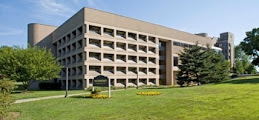Due to the recent global outbreak of Swine Influenza, EBSCO Publishing and the DynaMed Editors have made the main elements of the DynaMed clinical summary for Swine Influenza free to health care providers and institutions throughout the world. The DynaMed topic on Swine Influenza consolidates information from multiple sources for health care providers to stay current with recommendations for monitoring, diagnosing, and treating patients with flu-like illnesses during this outbreak. DynaMed Editors will continue to monitor information and update this topic as needed throughout this global crisis.
Click here to access.


















